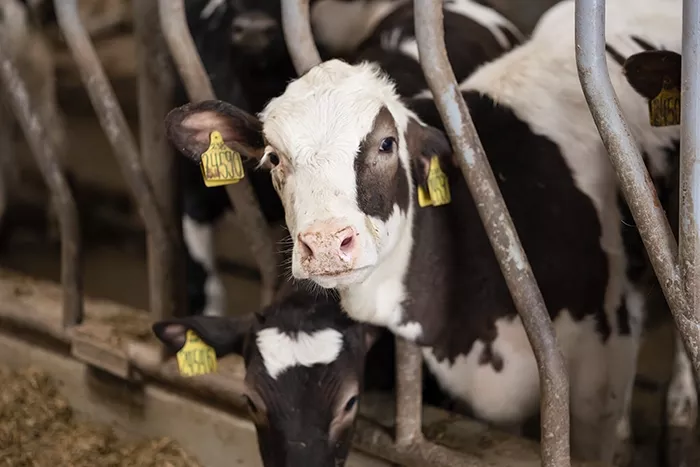The food industry will go to great lengths (and spend a fortune) to lobby policymakers, confuse the public and politicise scientific findings. When scientific evidence indicates the need to phase down environmentally harmful or unhealthy products, the responsible industry pushes back. In an article for The Conversation, Stephanie Walton, DPhil candidate in the School, explores how stranded assets may be motivating this resistance and examines the possible solutions.
News

SoGE MSc student Tabina Manzoor gives opening address at Right Here, Right Now climate summit
Tabina Manzoor, a Kashmiri student, researcher, and environmentalist currently pursuing an MSc in Water Science, Policy, and Management at SoGE, served as a student co-moderator at Oxford’s recently concluded Right Here Right Now Global Climate Summit, where she also gave an opening address at the Sheldonian Theatre.
Cycling is ten times more important than electric cars for reaching net-zero cities
Christian Brand, Senior Research Fellow and Associate Professor, explains how active travel can contribute to tackling the climate emergency earlier than electric vehicles while also providing affordable, reliable, clean, healthy and congestion-busting transportation in his newly authored article for The Conversation.

SoGE researchers embark on new, collaborative partnership with English Heritage
Over the next four months, Dr Martin Michette of the Oxford Resilient Buildings and Landscapes Laboratory (OxRBL) will work closely with English Heritage to co-develop and pilot a framework of collaborative research and knowledge exchange activities to support a shared vision for sustainable conservation, thanks to support from the Social Sciences Engagement Fellowships scheme.

Antony Farag named on Powerful Media's 2021 Future Leaders list
Congratulations to Tony Farag (BA in Geography) for his inclusion in the 2021 Future Leaders list. Future Leaders is an annual publication which profiles 150 of the UK's most outstanding African and African Caribbean students and new graduates. Click here and turn to page 9 to find out more about Tony.

Net Zero pledges go global, now action needs to follow words - Oxford-ECIU report
Net zero targets now cover two thirds of the global economy, according to a report today from Oxford Net Zero and the ECIU (Energy and Climate Intelligence Unit) - even though it was only a decade ago that Oxford climate scientists first showed the need to reach net zero emissions. However, despite the rapid progress, the study reveals that only 20% of these targets currently meet quality tests. The report was co-authored by Dr Steve Smith at the Smith School of Enterprise and the Environment.

Oxford's ambitious Environmental Sustainability Strategy is approved
Oxford University approves its Environmental Sustainability Strategy aiming for net zero carbon and biodiversity net gain by 2035. Includes comment by Prof Myles Allen, Professor of Geosystem Science at SoGE and leader of climate research programme Oxford Net Zero.

Census 2021 will reveal how a year of lockdowns and furlough has transformed the UK
Danny Dorling discusses the pros and cons of the 2021 census, commenting how it will provide a clearer picture of the inequalities that have come to light since the beginning of the pandemic in his latest piece for The Conversation.

Finding inspiration in your back garden - and from the past
Yadvinder Malhi, Professor of Ecosystems Science, authors a new blog explaining how he found solace and refuge in local nature over this year of pandemic and lockdown. Read in full on the University's Science Blog.

To what extent does climate change affect food insecurity? What we found in Lesotho
Large-scale droughts can have cascading impacts on food security. They can reduce yield, increase food prices, trigger changes in consumption and lead to unstable supply. Dr Fredi Otto and Jasper Verschuur explore the situation in Lesotho in The Conversation.

If Boris Johnson is serious about levelling up, he would plan for a 2026 census now
Professor Danny Dorling shares concern that this month's census would not give an accurate picture of Britain due to lockdown measures, stating that an extra census in 2026 would show whether the government's aim of "levelling up" poorer areas was working. Read in full via The Guardian.

Are we on track for a green recovery? Not Yet. Hundreds attend Oxford-UN eco event.
International spending on COVID-19 economic recovery is falling short of aspirations to build back more sustainably, according to a report today from the Economic Recovery Project, backed by UNEP. However, a green recovery is still achievable and could lead directly to higher economic returns and social co-benefits.







